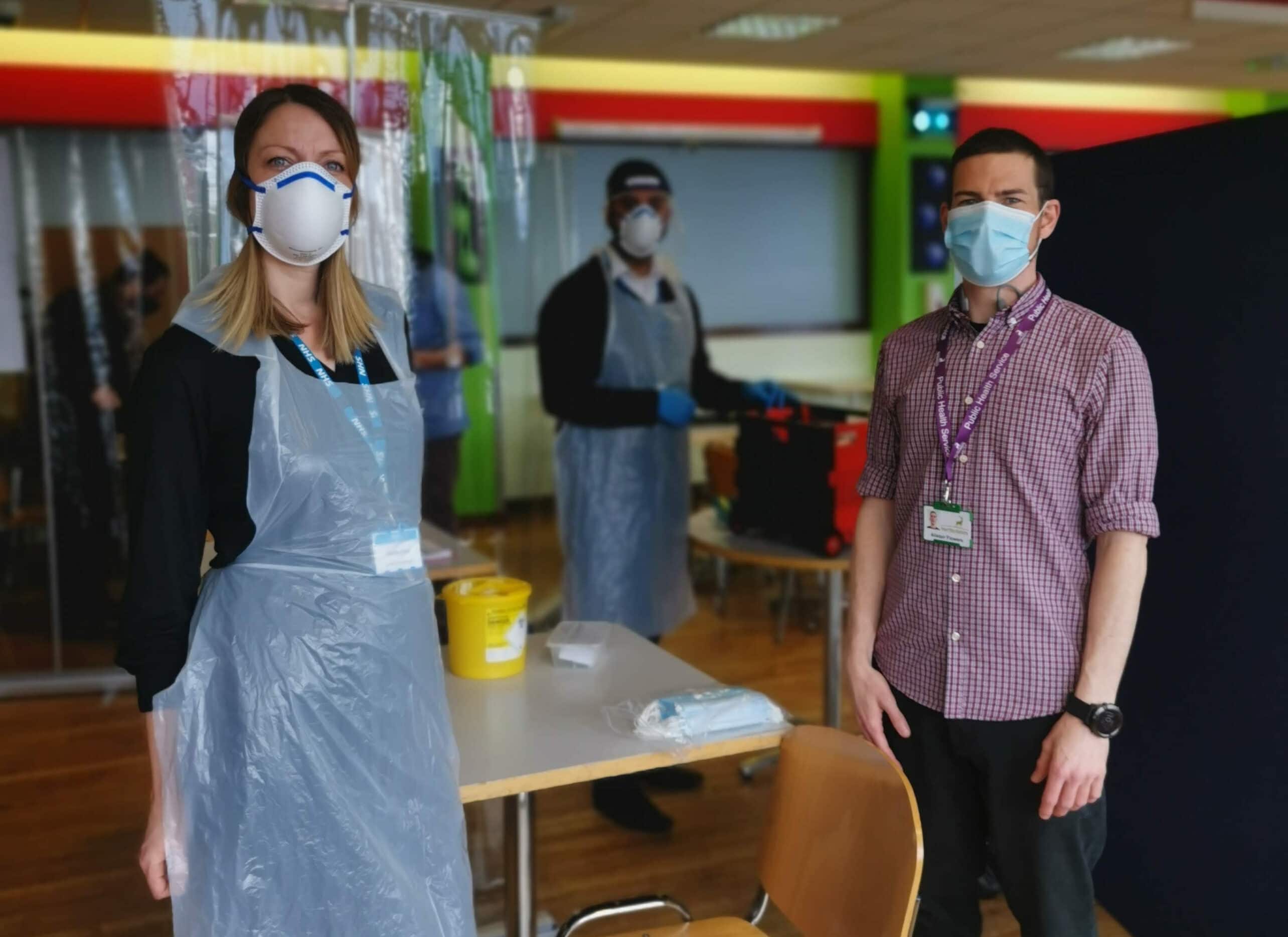This case study describes a county-wide approach to vaccinating people experiencing homelessness and rough sleepers in suburban, urban and rural settings.
Hertfordshire is a two-tier authority, with the County Council (HCC) being the upper-tier authority, with 10 District and Borough authorities making up the second tier.
How it Began
In early February, the Hertfordshire Covid-19 Vaccination Health Inequalities Group was formed by Herts Valleys CCG, East & North Herts CCG and HCC Public Health directorate. At this point Watford Borough had been vaccinating their homeless population since mid-January under the guidance of Dr. Martha Ford, lead GP for Meadowell Clinic at Watford Health Centre (Central Watford PCN). Meadowell Clinic is a primary care service for people experiencing homelessness. National guidance for vaccine priority groups allowed for flexibility at local level to mitigate health inequalities.
The Hertfordshire Rough Sleeper Task & Finish Group was formed as a sub-group of the Health Inequalities Group. The group is chaired by Alistair Flowers, HCC Public Health Commissioning & Monitoring Officer for housing related support and complex needs and is formed of Dr. Ford, District and Borough Housing representatives, a HCC Adult Social Care complex needs commissioning representative alongside a representative from HCC Public Health Behavioural Change Unit (BCU).
Planning for Delivery
HCC Public Health Contracts & Commissioning undertook a desktop scoping exercise which considered the models being delivered in 11 different areas in England, this exercise also incorporated learning from the early rollout in Watford Borough. Public Health Behavioural Change Unit then undertook a sub-group behavioural analysis relating to health outcomes for rough sleepers and people experiencing homelessness which included the barriers and drivers for this group.
A mapping exercise plotted primary care vaccination sites, and the largest cohorts of temporarily accommodated individuals as well as the locations of Hertfordshire’s hostels and SWEP provision.
Using data from District Housing Teams, HCC Adult Care Services and Meadowell clinic records around 500 people were identified as rough sleeping, sofa-surfing, in hostel accommodation or in temporary accommodation related to Everyone In/Protect Plus across the 10 districts. From this two distinct cohorts were identified – Cohort 1 (Everyone In/Protect Plus/Temporarily Accommodated/Rough Sleeping) and Cohort 2 (Hostel Residents).
Following this research, a two phased approach was agreed upon. Phase 1 would consist of Primary Care Network (PCN) delivery followed by a Phase 2 in-reach/outreach delivery to accommodation sites.
Delivering the Vaccine
Meadowell Clinic at Watford Health Centre undertook a Phase 1 approach from mid-January offering drop-in clinics to vaccinate their patients who are largely made up of Cohort 1 and 2 patients. As of mid-March, Dr. Ford is now utilising a Phase 2 approach at Watford’s hostels and SWEP sites.
With regard to the remaining 9 Districts and Boroughs it became apparent that each PCN, in each locality, had differing opinions on the best approaches to making the vaccine available to people in temporary accommodation and hostels. It was decided that a blended approach to vaccination would be preferred when discussing operational considerations in the first two Districts to roll out. Following this decision Phase 1 has largely been avoided with a preference for In-Reach to hotels and hostels with 10+ residents and Outreach to geographically clustered individuals (i.e., people who are in the same neighbourhood).
HCC Public Health BCU are on hand to analyse the uptake monitoring data after the Everyone In cohort have been offered their first vaccination by the end of March. Particular attention is being paid to recorded reasons for decline so that targeted communication can be directed to this group through PCNs, support providers and through HCC and District and Borough Council lines.
Challenges and Next Steps
The Task & Finish Group made an early decision to take a harm minimization approach, prioritizing efforts to offer a first dose to all identified individuals before March 31st with second dose considerations to be made thereafter, likely at an individual PCN and District level.
This approach was chosen due to the nature of Cohort 1 who often face multiple disadvantages, active substance and alcohol misuse issues and lead a transient lifestyle that has been somewhat slowed by the introduction of temporary hotel and B&B accommodation under the Everyone In program. This has provided a unique opportunity to offer vaccination to those often unable to access basic healthcare.
We have ensured individuals have been able to access vaccination with or without their NHS number to hand on delivery dates. We have ensured that people are aware of the right to register with a GP prior to in-reach clinics and that not having a permanent address is not a barrier for this. We have also ensured that the administrative burden is shared between HCC Public Health and PCN Vaccination Teams to ensure a smooth flow of vaccination on delivery dates with a simple spreadsheet recording who has received a vaccination, on which day, at which site and if an individual declines then a reason is recorded.
At present we are working through Cohort 1 and Cohort 2 with delivery starting to begin across hostel sites. It has been noted that there is around a 42% uptake rate in hotels/Cohort 1 with a significantly increased uptake rate for hostels/Cohort 2 at around 73%. Early analysis suggests that this is due to the level of support available to hostel residents with access to the vaccine on delivery dates being tightly coordinated by support staff.
For further information please contact:
Alistair Flowers (Alistair.flowers@hertfordshire.gov.uk) & Dr. Martha Ford (martha.ford@nhs.net)
 Back to Resources
Back to Resources 
